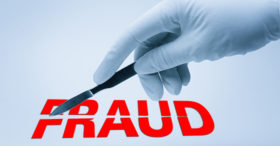When Anna, the CEO of a small manufacturing company, received an anonymous report about fraud in the accounting department, she wasn’t sure how to act. After all, the complaint could be accurate, but there was also a chance that it wasn’t. She called her company’s attorney, who recommended a forensic accountant to investigate. He also suggested that she perform some preliminary interviews to gather facts — but to be careful not to interrogate employees.
If you’re in a position similar to Anna’s, here’s how to conduct interviews before a fraud expert comes on the case.
Investigation prep
In advance of requesting any interviews, decide what information you’re looking for. Knowing what you want helps you get to the truth of the matter quickly and avoid getting sidetracked by extraneous information. Then, identify who’s best able to supply that information.
Say, for example, you suspect an accounts receivable employee of siphoning money. You may want to talk to that person’s supervisor and a member of your IT department to get information on work habits, unusual behavior or signs of file tampering. Remember, though, that people may be reluctant to share information if they feel it reflects poorly on them or if it might land someone else in hot water.
Restraint is critical
When you sit down for an interview, set the tone with some introductory questions and ask the interviewee to agree to cooperate. In most cases, you’ll be looking for information that helps prove or disprove your suspicions, and the interview will be fact-finding in nature. It should last long enough for you to obtain all the information the subject has to offer. But don’t prolong sessions unnecessarily.
Aim for an informal, relaxed conversation and be sure to remain professional, calm and nonthreatening. Don’t interrupt unnecessarily, suggest that you have preconceived ideas about who did what, or assert your authority unnecessarily. If you suspect someone is withholding information, try asking more detailed questions. And if someone says something you believe is untrue, ask for clarification. You might suggest that your question was misunderstood or that the employee didn’t give it enough thought before answering.
Finally, never make threats or promises to encourage an employee to change a statement or confess. If the case ends up in court, such tactics could make the evidence you collect inadmissible. If someone persists in lying, ask them to put their statement in writing and sign it. Then turn the statement — and your suspicions — over to fraud experts.
Give it to the experts
If you decide there’s evidence that fraud has occurred, engage a forensic accountant to investigate further. This expert will interview potential suspects and witnesses to get to the bottom of the matter while gathering critical evidence of a crime. Contact us for help and more information.
© 2021 Covenant CPA

